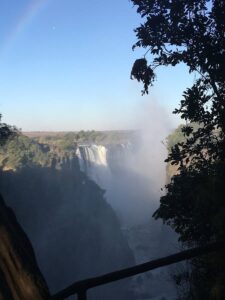Ecuador, nestled on the equator and acclaimed for its diverse geography, offers a plethora of astonishing facts that engage travelers and enthusiasts alike. From its majestic volcanoes to its vibrant cultural tapestry, Ecuador presents a unique blend of natural beauty and historical richness that captivates the imagination. This article delves into several intriguing facets of this South American nation, emphasizing its allure and the deeper reasons why it garners fascination.
1. The Equatorial Wonder
Ecuador is epitomized by its geographical significance as the only country that bears the name of the equator. This invisible line divides the planet into the Northern and Southern Hemispheres, and standing astride it offers visitors a distinctive experience. The Middle of the World monument, located just a short drive from Quito, provides an opportunity for tourists to straddle the globe. However, the fascination extends beyond mere geography; local culture remarkably intertwines with this equatorial identity, shaping everything from agricultural practices to indigenous rituals.
2. Volcanoes: Majestic Sentinels
The Andean region of Ecuador boasts an impressive array of volcanoes, many of which are active. Cotopaxi, one of the highest active volcanoes in the world, towers at 5,897 meters (19,347 feet) and beckons climbers and adventurers. The region’s volcanic landscape is not merely geological but is imbued with rich folklore and a deep connection to the communities that live in its shadow. The reverence for these natural monuments illuminates the intertwining of nature and spirituality in Ecuadorian life, captivating anyone who seeks to understand the cultural implications of these imposing giants.
3. Biodiversity Hotspot
Ecuador is home to a remarkable diversity of flora and fauna, with ecosystems ranging from Amazon rainforests to high-altitude paramo. This tiny country is one of the most biodiverse places on Earth, featuring more than 1,600 species of birds and an astonishing number of plant varieties. The Galápagos Islands, an essential part of Ecuador, are a microcosm of evolution with famously unique species like the giant tortoises and marine iguanas. The environmental richness of Ecuador acts as a living laboratory, showcasing nature’s adaptability and resilience, and serves as a reminder of humanity’s role in conservation efforts.
4. Cultural Melting Pot
Ecuador’s culture is a vibrant amalgamation of indigenous traditions and Spanish colonial influences. With over 14 distinct indigenous nations, Ecuador possesses a cultural diversity that enriches its social fabric. Traditional festivals, music, and art forms frequently reflect these mixed heritages. The renowned Inti Raymi festival, for instance, honors the sun god and exemplifies how these traditional customs continue to thrive alongside modernity. The perennial dance of preserving traditional roots while embracing contemporary societal changes highlights the dynamic cultural evolution that drives fascination.
5. Gastronomic Delights
The culinary landscape in Ecuador is as varied as its topography, featuring an array of regional dishes that showcase the country’s agricultural bounty. Staples such as potatoes, maize, and beans are transformed into exquisite dishes such as ceviche, llapingachos, and locro. Each region boasts its own gastronomic specialties influenced by local customs and ingredients. Additionally, the use of native products like quinoa and manioc underscores the deep agricultural heritage and connection to the land. The call to experience Ecuadorian cuisine is not merely about taste; it invites appreciation for the cultural narratives encapsulated within each dish.
6. The Enigmatic Otavalo Market
The Otavalo Market, one of the largest indigenous markets in South America, reflects Ecuador’s rich heritage and entrepreneurial spirit. Handwoven textiles, vibrant handicrafts, and artwork are available, offering travelers a glimpse into the indigenous artisans’ skills honed over generations. This market stands as a testament to the resilience of indigenous cultures in the face of globalization, acting as a bridge between ancient traditions and modern economies. The market experience stimulates not only the senses but also fosters a deeper understanding of the region’s sociocultural dynamics.
7. UNESCO Heritage Sites
Ecuador is home to several UNESCO World Heritage Sites that celebrate its worthiness as a cultural and natural treasure. The historic centers of Quito and Cuenca showcase colonial architecture that harks back to the Spanish conquest while retaining deep connections to indigenous roots. Additionally, the breathtaking landscapes of the Sangay National Park and the Galápagos Islands are integral to the Earth’s biodiversity. These designations underscore not only the beauty but also the global significance of preserving such extraordinary sites, serving as a reminder of the importance of heritage conservation.
8. Amazonian Mystique
The Ecuadorian Amazon, known as the Oriente, is a realm of undiscovered wonders. The rich ecosystems provide habitats for countless species and indigenous tribes, who have thrived here for centuries. The area’s natural resources, particularly its biodiversity, have spurred considerable scientific interest. The interaction between indigenous inhabitants and the surrounding nature is profound, as traditions and daily life remain intertwined with the rainforest. This ancient knowledge and symbiosis between humanity and nature evoke a sense of awe and a call to respect and preserve these ways of life.
9. Adventurous Pursuits
Ecuador offers an array of adventures that cater to adrenaline seekers and nature lovers alike. From trekking on the Inca Trail to exploring the lush jungles of the Amazon, each expedition promises unique experiences that are imbued with local lore and natural beauty. The exploratory spirit prevalent in Ecuador encourages travelers to immerse themselves in its unfiltered landscapes, deepening their understanding of the country’s physical and cultural landscapes. Such adventures forge connections both to nature and to the people who inhabit these extraordinary places.
10. The Richness of Indigenous Languages
Over 13 indigenous languages are spoken throughout Ecuador, with Quichua being the most prevalent. These languages are not just forms of communication; they encapsulate the worldview and histories of their speakers. The preservation and revitalization of indigenous languages highlight the ongoing struggle to maintain cultural identity in contemporary society. The linguistic diversity of Ecuador reflects a multi-faceted narrative of human experience, emphasizing the importance of recognizing and valuing all voices in the cultural dialogue.
In conclusion, Ecuador emerges as a fascinating tapestry woven together by natural wonders, cultural richness, and historical significance. The intricate relationship between the landscape and its people, along with the myriad influences that shape this nation, beckons to those enchanted by exploration, discovery, and understanding. Ecuador is not just a destination; it is an invitation to delve into an extraordinary narrative filled with depth and significance. Whether it is the towering volcanoes, vibrant markets, or indigenous traditions, each facet contributes to Ecuador’s undeniable allure, making it a fascinating subject of exploration and admiration.






